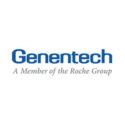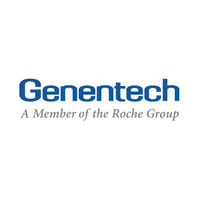Author Interviews, Hematology, Lymphoma / 12.12.2019
Mosunetuzumab for Poor Prognosis Non-Hodgkin Lymphoma
MedicalResearch.com Interview with:
 Priscilla White, spokesperson
Senior Manager, Corporate Relations
Genentech
MedicalResearch.com: What is the background for this study? What are the main findings?
Priscilla White, spokesperson
Senior Manager, Corporate Relations
Genentech
MedicalResearch.com: What is the background for this study? What are the main findings?
 Priscilla White, spokesperson
Senior Manager, Corporate Relations
Genentech
MedicalResearch.com: What is the background for this study? What are the main findings?
Priscilla White, spokesperson
Senior Manager, Corporate Relations
Genentech
MedicalResearch.com: What is the background for this study? What are the main findings?
- Response: Mosunetuzumab is a T-cell engaging bispecific antibody designed to target CD20-positive B-cell blood cancers, by binding to both CD20 (on the surface of B-cells) and CD3 (on the surface of T-cells).
- Analyses from the ongoing Phase I/Ib GO29781 study indicate that mosunetuzumab can produce durable responses in patients who have relapsed or who are refractory to prior treatment(s), including those who have relapsed or who are resistant to CAR T-cell therapy.
- Results from this dose-escalation study showed encouraging efficacy with an objective response rate (ORR) of 62.7 percent (n=42/67) in slow-growing Non-Hodgkin Lymphoma and 37.1 percent (n=46/124) in aggressive NHL across all dose levels assessed.
- Additionally, data demonstrated a complete response (CR) rate of 43.3 percent (n=29/67) in slow-growing NHL and 19.4 percent (n=24/124) in aggressive NHL. CRs showed durability, with 82.8 percent (n=24/29) of patients with slow-growing NHL remaining in remission up to 26 months off initial treatment and 70.8 percent (n=17/24) of patients with aggressive NHL, remaining in remission up to 16 months off initial treatment.
- Of the participants who received prior CAR T-cell therapy, the ORR was 38.9 percent (n=7/18), and 22.2 percent (n=4/18) achieved a CR.
- Adverse reactions included cytokine release syndrome (CRS) in 28.9 percent of patients with 20.0 percent at Grade 1 and 1.1 percent at Grade 3. Grade 3 neurological adverse events occurred in 3.7 percent of patients.
















